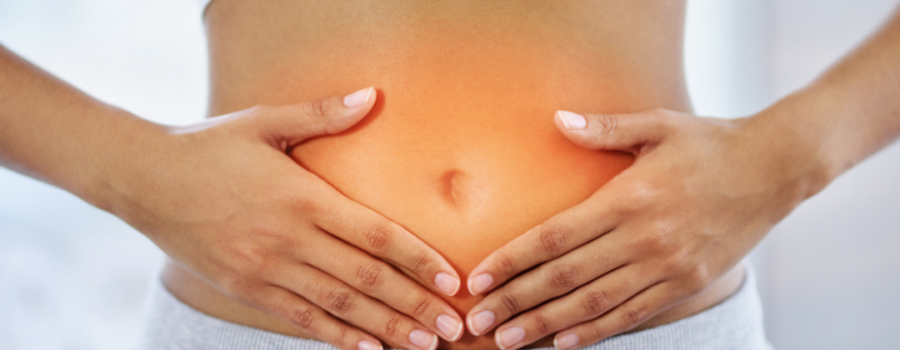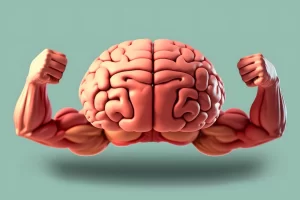In recent years, the connection between gut health and overall wellness has garnered significant attention, and for a good reason. Our digestive system is more than just a food processor—it’s a critical regulator of many bodily functions, including the balance of hormones. When the gut functions optimally, it supports the proper metabolism and regulation of hormones, which in turn influences energy levels, mood, weight, and even reproductive health. One of the most intriguing aspects of this connection is the role that gut health plays in estrogen metabolism and reabsorption, particularly how conditions like constipation can negatively affect this delicate balance.
Gut Health and Hormonal Balance
Our gut is home to trillions of microorganisms that make up the gut microbiome. These bacteria, viruses, fungi, and other microbes are involved in numerous bodily processes, from digesting food to producing vitamins and even modulating the immune system. Importantly, the gut microbiome also plays a significant role in hormone regulation.
Hormones act as the body’s messengers, affecting nearly every cell and organ. A well-functioning gut supports the proper synthesis, metabolism, and elimination of these chemical messengers. When the gut is out of balance—whether due to a poor diet, stress, or an imbalance in gut bacteria—the entire endocrine system can be thrown off course. This imbalance can lead to symptoms such as fatigue, mood swings, weight fluctuations, and even more serious conditions related to hormonal dysregulation.
Estrogen Metabolism and the Role of the Gut
Estrogen is one of the primary female sex hormones, but it also plays essential roles in men, affecting libido, bone density, and cardiovascular health. The liver processes estrogen and converts it into a form that is excreted via the bile into the intestines. Once in the intestines, a specialized group of bacteria—collectively known as the “estrobolome”—produces enzymes that deconjugate estrogen. This process converts estrogen into a form that can be reabsorbed into the bloodstream, a process known as enterohepatic circulation.
Under normal circumstances, this reabsorption process helps maintain adequate estrogen levels in the body. However, when the gut environment is compromised, this delicate balance can be disrupted. One common issue that can interfere with this process is constipation.
How Constipation Affects Estrogen Reabsorption
Constipation is more than just an inconvenience—it can have significant effects on your hormonal health. When stool lingers in the colon due to slow gut motility, it disrupts the usual balance of the gut microbiome. In a healthy colon, a diverse community of bacteria efficiently performs the deconjugation of estrogen, ensuring that only the necessary amount is reabsorbed into the bloodstream. However, when constipation sets in, the prolonged transit time can lead to an overgrowth of bacteria with high beta-glucuronidase activity. This enzyme plays a key role in deconjugating estrogen, and its excessive activity can result in too much free estrogen being reabsorbed.
Elevated levels of estrogen—especially when not balanced by progesterone or other counter-regulatory hormones—can lead to a condition known as estrogen dominance. Estrogen dominance is associated with a host of symptoms including weight gain, mood disturbances, fatigue, and even increased risk for conditions like breast cancer and endometriosis. In men, an imbalance can result in gynecomastia (the development of enlarged breast tissue), reduced libido, and other metabolic issues.
Thus, constipation doesn’t just cause discomfort—it can set off a cascade of hormonal imbalances by altering the natural process of estrogen metabolism and reabsorption. Maintaining regular bowel movements is not only critical for digestive comfort but also for preserving the intricate hormonal balance within the body.
Strategies to Promote Gut Health and Hormonal Balance
Given the significant impact that gut health can have on hormonal regulation, it is essential to adopt lifestyle and dietary habits that support a healthy digestive system. Here are some strategies that can help:
1. Increase Dietary Fiber: Consuming a high-fiber diet is one of the most effective ways to promote regular bowel movements. Fiber helps to add bulk to your stool, speeding up its passage through the digestive tract. Foods such as fruits, vegetables, legumes, and whole grains are excellent sources of dietary fiber.
2. Stay Hydrated: Drinking plenty of water is crucial for preventing constipation. Adequate hydration helps to soften stool, making it easier to pass through the colon. Aim for at least 8 glasses of water per day and adjust based on your activity level and climate.
3. Include Probiotics: Probiotics are beneficial bacteria that can help maintain a healthy gut microbiome. They are found in fermented foods like yogurt, kefir, sauerkraut, and kimchi, or can be taken as supplements. Probiotics may help balance the estrobolome and ensure that estrogen metabolism proceeds as it should.
4. Regular Physical Activity: Exercise not only supports overall health but also promotes regular bowel movements. Physical activity stimulates the muscles in your intestines, aiding in the movement of stool. Even moderate exercise, such as walking, can make a significant difference.
5. Manage Stress: Chronic stress can disrupt gut motility and alter the composition of the gut microbiome. Techniques such as mindfulness, meditation, deep breathing, and yoga can help reduce stress and support digestive health.
6. Consider Prebiotics: Prebiotics are non-digestible fibers that serve as food for beneficial gut bacteria. They help to foster a healthy environment for these microbes to thrive, further supporting balanced hormone metabolism. Foods rich in prebiotics include garlic, onions, bananas, and asparagus.
The Bigger Picture: Gut Health as a Cornerstone of Wellness
While the discussion on estrogen reabsorption highlights one critical aspect of the gut-hormone connection, it’s important to remember that a healthy gut contributes to overall wellness in many ways. Beyond hormone regulation, a balanced gut microbiome supports the immune system, improves mood, and can even enhance cognitive function. This interconnectedness underscores the importance of nurturing your digestive system—not just for comfort, but for long-term health and vitality.
Poor gut health can create a domino effect that impacts nearly every aspect of your well-being. When digestion is impaired, nutrient absorption suffers, which can lead to deficiencies that further exacerbate hormonal imbalances. Moreover, inflammation in the gut has been linked to a range of chronic conditions, from autoimmune diseases to mental health disorders. Thus, investing in your gut health is one of the most powerful steps you can take towards achieving overall wellness.
Final Thoughts
The importance of proper gut health in regulating hormones cannot be overstated. The gut plays a pivotal role in metabolizing hormones like estrogen through the delicate process of enterohepatic circulation. When conditions like constipation disrupt normal gut function, they can lead to increased estrogen reabsorption and hormonal imbalances that have far-reaching effects on overall health.
By prioritizing gut health through a balanced diet, adequate hydration, regular exercise, and stress management, you not only improve your digestive function but also set the stage for optimal hormonal balance. Whether you’re dealing with symptoms of estrogen dominance or simply looking to enhance your overall well-being, understanding and nurturing your gut is an essential piece of the wellness puzzle.
Remember, the journey to better health starts in your gut. Take small, consistent steps to support your digestive system, and you’ll likely notice improvements in energy, mood, and overall hormonal harmony. Your body is a complex, interconnected system—nurturing one part invariably benefits the whole.
Embrace the power of gut health, and unlock the potential for a balanced, vibrant life.







